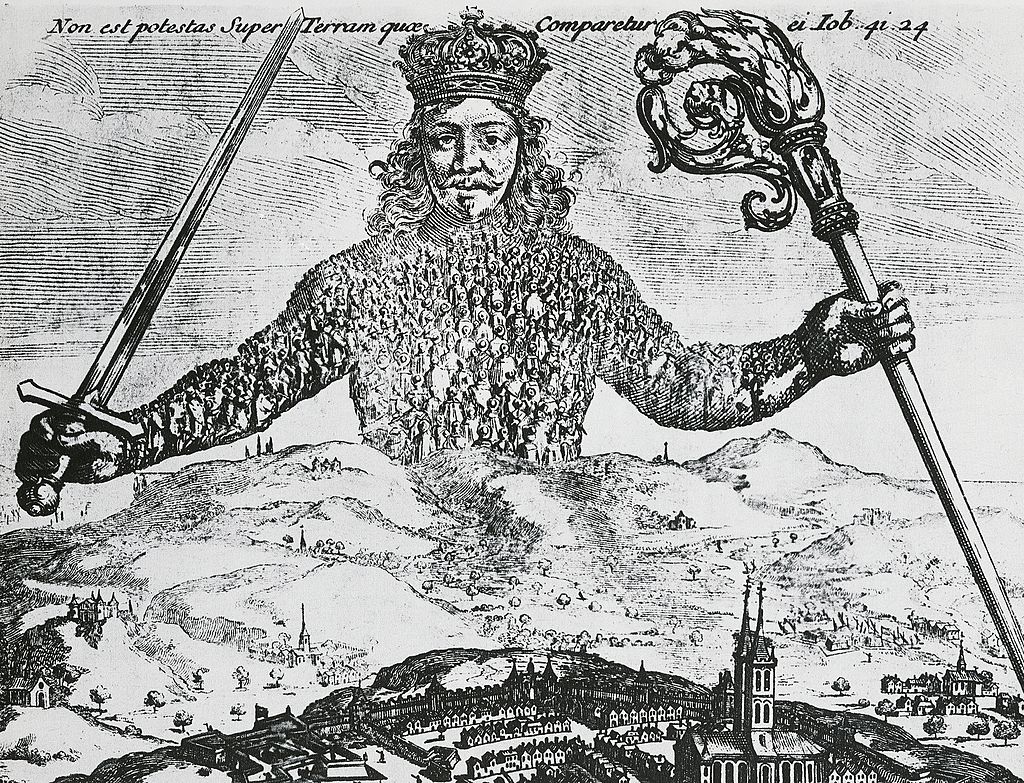
When Thomas Hobbes described life in a state of nature as “solitary, poor, nasty, brutish and short,” he penned one of the most celebrated sentences in the English language. The seventeenth century philosopher asserted that that without “a common power to keep them all in awe,” human beings fall into a state of nature—a condition of anarchical warfare and lawless predation. It is an analysis that resonates powerfully at the present time, when states are failing in many parts of the world leaving chaos and crime in their wake.
For Hobbes, who fled the English Civil War in fear of his life to reside in Europe for some years, a state of nature was not a mythical era before human society existed but a breakdown in order that could happen at any time. In our day Haiti, some countries in Africa and Latin America, and sections of cities in the U.S. and Europe are not far from the condition Hobbes described. Increasingly, his pessimistic vision seems vindicated by a far-reaching decline in the security human beings need in their everyday lives.
Yet paradoxically, Hobbes was also an optimist. Using their reason, he believed, human beings could lift themselves out of brutish conflict. Humankind could enjoy what in his masterpiece Leviathan (1651) he called “commodious living”—a civilized life of peace, prosperity and culture through a social contract that would create a ruler all would obey. The sovereign power they brought into being—which could be a king or a republican assembly—would be unbounded in its powers, but its authority was limited to maintaining peace. No one had a divine or natural right to rule, and if the sovereign failed to protect its subjects it could be overthrown. In focusing on individuals and their wellbeing Hobbes was a liberal, possibly the only one worth reading today.
Hobbes’s insight that conflict is the default human situation has many lessons to teach us. One is that toppling tyrants does not secure liberty. In Iraq and later Libya, the west imposed regime change in the belief that it would lead to democracy. The result in both cases was the breakup of the state, with Iraq fracturing with the rise of ISIS and the secession of the Kurds, and Libya becoming an ungoverned space fought over by rival jihadist groups and a shifting melee of governments. The hard truth of which Hobbes reminds us is that politics is not a binary choice between freedom and tyranny. The real-world alternatives are often tyranny, a weak or failing state, or anarchy.
Hobbes also helps understand the transformations in democracies during the twenty-first century. In a succession of crises, governments have moved from claiming to extend human freedom to promising shelter from danger. The 9/11 terrorist attacks and the 2007-8 financial crisis saw western governments expanding their power to levels unknown since the Second World War. The process continued in the policies adopted during the COVID-19 pandemic. Not only did the state grow larger. It assumed responsibility for the physical and mental health of the population. Not liberty but safety has become the overriding imperative.

These new Leviathans differ from Hobbes’s in important ways. Hobbes’s Leviathan—which took its name from the biblical sea monster mentioned in the Book of Job—curbed freedom in order to secure its subjects against violence. The new Leviathans promise more. In a time when the future seems deeply uncertain, they offer to secure meaning in life for their citizens.
Western democracies have enabled big tech companies to censor content judged to be disturbing or harmful. They have allowed academic institutions to curb freedom of inquiry and expression among faculty and students. (In Behemoth, his book of dialogues on the Civil War, Hobbes wrote pithily: “The universities have been to the nation, as the wooden horse was to the Trojans.”) In sparing their citizens the anxieties that go with freedom of thought, the new Leviathans that have emerged in the west have some affinities with the totalitarian states of the last century.
From one point of view, Hobbes can be read as a liberal who illuminates the loss of freedom in our time. From another, he highlights some fundamental deficiencies of liberalism. He aimed to found the authority of the state on a minimal morality that could be accepted by all human beings. For him that meant treating self-preservation as the supreme value. The dominant human impulse was not love of power but fear of death—above all, death at the hands of other human beings. Hobbes knew that people are ready to die for pride and reputation. Even so, he was confident that the urge to avoid a violent end was strong enough to defeat other human impulses and support a sovereign that delivered peace.
Even in Hobbes’s day, this was clearly an overly optimistic vision. The wars of religion showed people dying for their beliefs in large numbers, and suicide bombers continue to do so. These religious believers have faith in an afterlife, but many of those who have died for their beliefs have had no such faith. Communists and Nazis have gone to certain death for the sake of their ideas and values, however false and twisted. Human beings do not value bare survival above all other things. What they seek are lives that make sense to them.
At this point, another side of Hobbes’s thought is pertinent. In a section of Chapter 5 of Leviathan that is rarely studied, Hobbes wrote of “the privilege of absurdity, to which no living creature is subject, but man only.” He went on to distinguish seven types of absurdity to which human beings are prone. All of them have in common the error of treating abstract terms as if they reflected actually existing entities. Unlike other animals, humans die (and kill) for the sake of words.
Hobbes failed to admit this truth into his political theory, but that is hardly surprising, for it destroyed the basis of his optimism. Even without their propensity to absurdity, it is hard to see how human beings can extricate themselves from Hobbes’s state of nature. How can they trust others—not least the all-powerful sovereign—to keep their promises? If we add the fact that they often care more about words and concepts than about preserving their lives, Hobbes’s political theory begin to look like an effort to square the circle. Revealingly, he devoted some of his later years to showing that mathematicians who believed any such thing was impossible were mistaken. Too much of a believer in reason, he fell into absurdities of his own.
In relying on fear to deliver humankind from anarchy, Hobbes was too optimistic. Yet humans do form states that give them a measure of security, and they achieve this by exercising what he called their privilege of absurdity. It is through ideas of belonging and a common life, not by any social contract, that we escape a state of nature. The final paradox of Hobbes’s philosophy is that he showed that human beings are not, in the end, ruled by fear, but by a need for meaning that brings them together even as it leads them into conflict.
More Must-Reads from TIME
- Cybersecurity Experts Are Sounding the Alarm on DOGE
- Meet the 2025 Women of the Year
- The Harsh Truth About Disability Inclusion
- Why Do More Young Adults Have Cancer?
- Colman Domingo Leads With Radical Love
- How to Get Better at Doing Things Alone
- Michelle Zauner Stares Down the Darkness
Contact us at letters@time.com